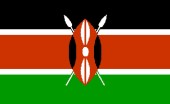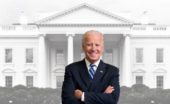So many memories, particularly of the years as neighbours on Rosemount Avenue, with shared activities, adventures and lively political discussions.…
Wednesday Night #1312
Written by Diana Thebaud Nicholson // April 25, 2007 // Africa, Beryl Wajsman, Geopolitics, Health & Health care, Reports, Wednesday Nights // 1 Comment
25 April 2007
Expo 67
How many of you realize that Friday the 27th is the 40th anniversary of the opening day of expo 67? We confess to a huge wave of nostalgia for what appears in retrospect as a kinder, gentler time – it was a golden summer in the memories of those who are old enough to have experienced the beautiful, bustling site and the immense amount of creativity from the nations of the world. It was billed as an educational event – and it was in every sense. Perhaps, most of important, Canadians, Québecois and Montrealers learned what they could do together; they pulled off an incredible feat in record time and were rightly proud of their achievement. Perhaps we could devote a few minutes this week to thinking about how that sense of pride and accomplishment could be restored to the national psyche.
Last Wednesday featured discussion of gun control and violence in the media, climate change, and an update on plans for the New School of Athens.
Since then, the world has survived three notable elections and we do not suffer from a lack of other topics, including no doubt, more on climate change. We note that in celebration of Earth Day , Linda Frum and Beryl Wajsmann have embraced the climate change denial views of Professor Richard Lindzen and Nathalie Elgrably of the Montreal Economic Institute.
Along with the death of Boris Yeltsin , the enigmatic figure who was responsible for dismembering the Soviet Union, we note with real sadness the loss of a towering figure in journalism and author of the seminal “The Best and the Brightest”, David Halberstam What a wonderful thought: Halberstam interviewing Yeltsin in the next world
Election of the new Head of State of oil-rich Nigeria, the majority of whose population of over 135 million suffers from awful poverty as a result of rampant corruption and mismanagement. Having heard nothing but reports of undelivered ballots, polling stations opening late or not at all, threats and violence, we are now informed by the electoral commission that the governing party’s candidate Umaru Yar’Adua won by a landslide. Aljazeera reports that Olusegun Obasanjo, the outgoing president, said the polls were “not perfect”, but appealed to Nigerians not to lose faith in the democratic process (!!). Independent observers sputter, but little will be done. One cannot help but wonder how the kleptocrats of Nigeria live with their reputation in the rest of the world. Maybe it doesn’t matter to them when their antics keep the price of oil up.
In Syria‘s parliamentary elections there is not even the pretense of open competition and little chance of surprise as a total of 167 seats (of which the Baath party gets 131) in the 250-seat assembly are reserved for the ruling National Progressive Front (NPF) coalition, led by the Baath party of Bashar al-Assad, the president. Is it any wonder that turnout is light? Or that the world has paid little attention?
We are sure that it is not the example of either country that has influenced tiny Bhutan to adopt the democratic process and we rather wish that idyllic state that measures its progress in terms of Gross National Happiness would remain as it is. Does modernity bring happiness? We rather think not.
And then there is France and a real horserace for round two on May 6, as the 7 million who voted for François Bayrou decide which candidate to back. Meanwhile, the analysis of votes in the first round makes for instructive reading
In an unrelated item from France, how many have had time to take their eyes off the news of the Wolf at the door of the World Bank to pay attention to rather unangelic practices of the Angel of the OECD
News of/from Canada includes the unusual alliance between the Conservatives and the NDP to defeat the Liberal motion on withdrawal from Afghanistan – truly a case of strange bedfellows given that the NDP thinks withdrawal should be NOW. Other news appears divided between assessment of Stéphane Dion’s leadership and the Conservatives’ attempts to deliver legislation that steers between their own anti-Kyoto instincts and public opinion polls that tell them they really need to do something for the environment if only to prove that John Baird is not Rona Ambrose.
The Report
A credibility gap
The tragic death of David Halberstam this week in an automobile accident brings to mind an era when investigative reporting was more trustworthy and the public more inclined to rely on the printed word. In this era, the public’s general lack of confidence tends to result in according equal credibility, or non-credibility to information from all sources. It is, perhaps, that non-action without penalty is a simpler solution to problems than effective action, especially when the need and measures to be taken are unclear. However, it is also true that conflicting claims made by the informed, the misinformed and the self-interested carry equal weight in the mind of a public that no longer knows how to differentiate between them. Too frequently, those in whom we have placed our trust have proven unworthy of that trust, or have been maligned by others with something to gain by discrediting them.
Climate change
Increasing evidence of rapidly escalating climate change has resulted in much dialogue, much cynicism and in North America, China and India, insufficient action to counteract the reported danger to life on the only planet where life is known to exist. If some authority doesn’t take responsibility to stop it, ninety-nine percent of the world will continue to ignore the threat for which the evidence is very persuasive, yet denied by many and disregarded by others.
It appears that while action is required at the local level, a world authority is required for implementation of a global plan. Despite the excellent work done by the United Nations towards achieving international cooperation on some issues even among member nations inimical to each other, it becomes clearer that world governance using the blueprint of the European Union would be a more viable instrument for change. Transnational foundations, now flush with cash, appear to be ready to further the goal of world governance free from the destructive irrational influence of national interest.
U.S. and the World Bank
The United Nations has made great strides in many areas since its inception despite frustration with the dominance, in many instances, of national interests over world interest. An interesting deviation from this is the agreement that emerged from the Bretton Woods Agreement. By convention, the President of the World Bank Group is nominated by the U.S. and has always been a US citizen, while the Managing Director of the IMF is nominated by the European directors and is a European. Both are subject to confirmation by the Board of Directors. Although President Bush has declared his support for Paul Wolfowitz, in the recently revealed scandal of his relationship with Shaha Ali Riza, the European directors and the staff association are unlikely to stand down from their demands that he resign. More important, it is likely that the long-term result will be a re-thinking of the convention regarding the nationality of the chief executives of both institutions.
David Dodge
With the announcement of the decision by David Dodge, “the world’s most respected central banker” not to seek a second term next year as Governor of the Bank of Canada, there is increased interest in the relationship between his retirement and the Conservative government, the influence of each on the other and the procedure for naming a successor. Although, the Finance Minister, as de facto member of the Bank of Canada, participates in the selection of the candidate to replace the departing Governor, the process is carried outby an executive recruitment firm.
However, as “The candidate must be approved by the federal minister of finance and cabinet before being appointed”, there is much room for conjecture regarding political influence over the final selection.
Derivatives
In the constantly rising world of finance, although concerns are being expressed about the inevitable end of the bull market, money still abounds. All though some hedge funds have gone broke, some hedge fund managers have been paid billions of dollars a year for having taken successful risks. The derivative market which enables the spreading of risk, thus permitting otherwise risky loans and investments, works well in a rising economy, but may very well exaggerate the effect exponentially as the economy slows down. The lack of regulation of the market in derivatives is of concern to many.
Shortage of family physicians (continuing saga)
The shortage of family physicians in Québec has been evident for some time, but it is shocking to learn that Canada is the only country in the world where easy access to a physician is not assured. That shortage has been the result of deliberate action in this province by cutting the number of places in medical school, offering early retirement to medical practitioners and more recently, regional manpower plans that make it difficult for new physicians to work in urban areas. Because they cannot hope to practice in the cities, medical students avoid studying to become family physicians, leaving twenty-one vacant positions in the faculty of Medicine at McGill University. It would appear that with the sole exception of the patient whose interests are represented by no-one, all parties are working in their own best interest.
Bhutan
Bhutan, one of the smallest countries in the world, lying between India and China, has made the news. Thanks to the efforts of a Canadian Jesuit priest, its population is well educated, though poor, the kingdom’s main source of revenue being the sale of hydro-electric power to India. The Monarch, King Jigme Singye Wangchuck, loved and respected by his subjects, is resigning in favour of a democratic government, mostly because he fears that his successors might not have, indefinitely, the same respect and care for the population as he and his predecessors have shown.




One Comment on "Wednesday Night #1312"
Nov 10, 2007 (RCI)
ONTARIO FACING DOCTOR SHORTAGE
The Canadian Institute for Health Information has come out with a grim warning for patients in the province of Ontario who are seeking a doctor. The Institute’s latest statistics show that the province has a shortage of two thousand doctors. Statistics also show that the province’s doctors are leaving for other parts of Canada. A further shortage is predicted because 2,500 doctors are scheduled for retirement. The neighbouring province of Quebec also faces a doctor shortage.